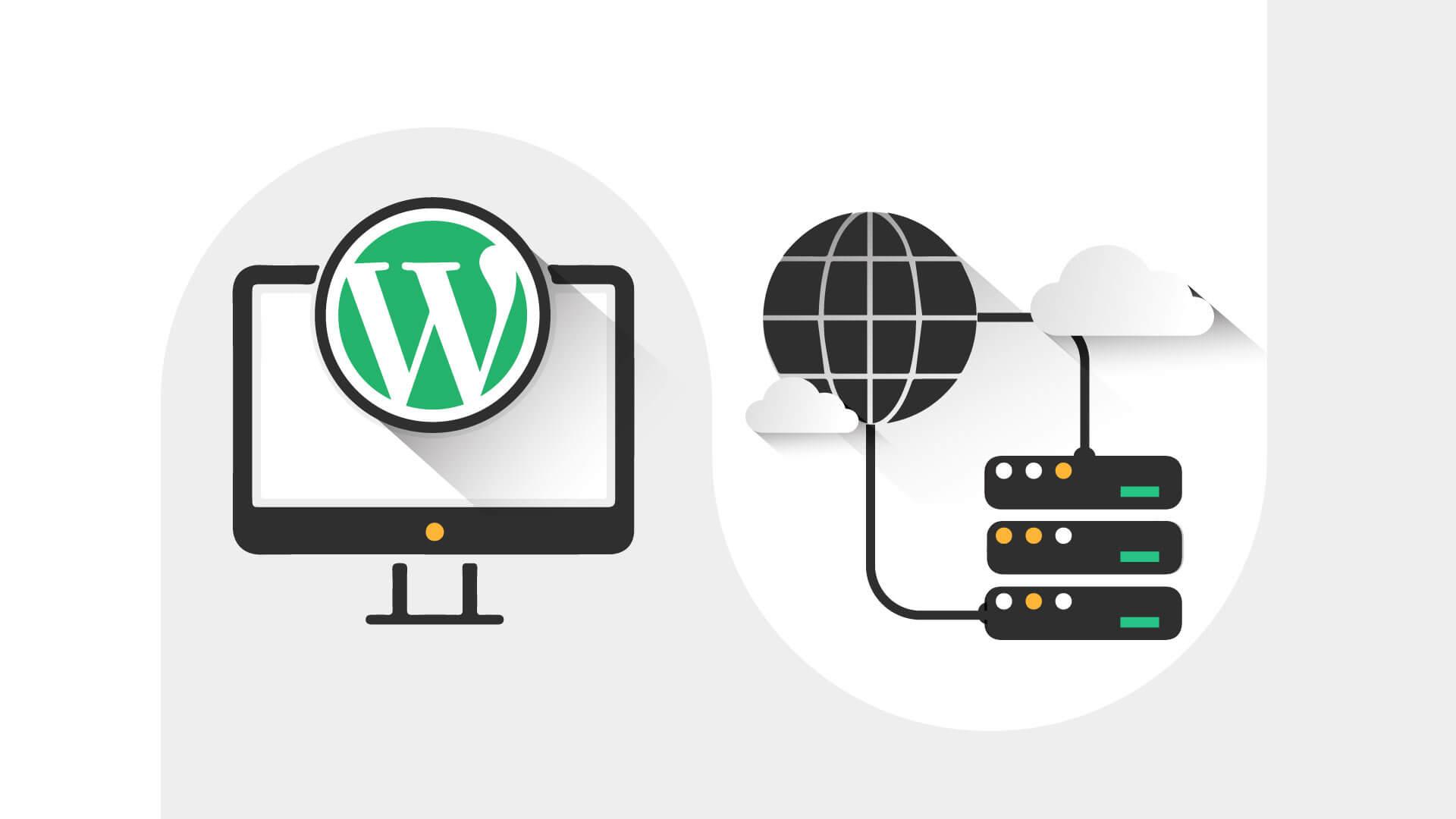When choosing between web hosting and WordPress hosting, it’s crucial to understand their differences. Web hosting is a broad service for any website, while WordPress hosting is tailored specifically for WordPress sites, offering optimized performance and security. Make the smart choice!
Web Hosting vs WordPress Hosting: What’s the Difference?
When it comes to launching your website, the choice of hosting can feel a bit like standing at a crossroads, with two enticing paths stretching out before you: Web Hosting and WordPress Hosting. Both promise to support your online dreams, but they cater to different needs and experiences. So, what’s the real difference between the two? If you’ve ever found yourself wondering which option is the best fit for your project—whether you’re starting a blog, building a portfolio, or setting up an e-commerce site—you’re not alone. In this article, we’ll break down the essentials, uncover the nuances, and help you make an informed decision that aligns perfectly with your goals. Let’s dive in and discover the right hosting solution for your needs!

Understanding Web Hosting and WordPress Hosting
Web Hosting typically refers to services that provide storage space and connectivity for a website on the internet. This includes a variety of hosting types such as shared, VPS, and dedicated hosting. Here are some key characteristics:
- Flexibility: Supports various platforms and technologies, not just WordPress.
- Cost-Effective: Often more affordable, especially for entry-level plans.
- Resource Allocation: Resources like CPU and bandwidth may be shared among multiple sites.
On the flip side, WordPress Hosting is specifically optimized for websites built on the WordPress platform. This type of hosting streamlines the overall experience, ensuring that WordPress websites run smoothly and efficiently. Some notable benefits include:
- Performance Optimization: Enhanced speed and uptime tailored for WordPress.
- Automatic Updates: Regular updates for both WordPress core and plugins.
- Specialized Support: Customer service teams trained to handle WordPress-specific issues.
To further clarify the differences, consider the following table that highlights key aspects:
| Feature | Web Hosting | WordPress Hosting |
|---|---|---|
| Setup & Configuration | General setup; may require manual WordPress install | One-click WordPress installation |
| Performance | Standard resources; variable speed | Optimized for WordPress with caching and CDN |
| Security | Basic security measures | Enhanced security features and regular backups |
Choosing between web hosting and WordPress hosting ultimately depends on your specific needs. If you’re aiming for a simple blog or website without the need for extensive customization, general web hosting may suffice. However, if you’re committed to building a robust and high-performing WordPress site, investing in WordPress hosting can save you time and headaches down the road.
understanding these differences not only empowers you to make an informed decision but also sets a solid foundation for your online presence. With the right hosting solution, you’ll unlock your website’s full potential, ensuring it runs smoothly and efficiently for your audience.

Key Differences Between Web Hosting and WordPress Hosting
When choosing a hosting solution, it’s essential to understand the core differences between web hosting and WordPress hosting, as each serves distinct purposes based on your needs. While both options allow you to make your website accessible on the internet, they cater to different types of users and technical requirements.
Web hosting is a broader term that encompasses any service that allows you to store your website files on a server. This option can work for various website types, be it static HTML sites, e-commerce stores, or personal blogs. Web hosting typically provides the following features:
- Versatility: Suitable for all types of websites, not limited to WordPress.
- Control: Greater freedom to customize your server environment.
- Scalability: Options available for growth as your website expands.
On the other hand, WordPress hosting is specifically tailored for WordPress websites. This specialized hosting provides an optimized environment for WordPress, which can significantly enhance your website’s performance. Here are some key features of WordPress hosting:
- One-Click Install: Easily set up WordPress with a single click, making it ideal for beginners.
- Automatic Updates: Regular updates to WordPress core, themes, and plugins, enhancing security and functionality.
- Performance Optimization: Built-in caching and other features designed to improve load times and user experience.
Another significant difference lies in the level of support offered. Web hosting providers may offer general support, but WordPress hosting services typically provide specialized assistance related to WordPress issues. This can be a huge advantage for users who may not be as tech-savvy but want to maintain their WordPress site effectively.
| Feature | Web Hosting | WordPress Hosting |
|---|---|---|
| Target Audience | General Website Owners | WordPress Users |
| Setup Complexity | Varies | Easy (One-Click Install) |
| Performance Features | Basic | Enhanced for WordPress |
| Technical Support | General | WordPress Specific |
Ultimately, the choice between web hosting and WordPress hosting boils down to your specific needs. If you’re building a website with WordPress and want a hassle-free experience optimized for performance, then WordPress hosting is likely the way to go. However, if you require a more versatile solution that accommodates various website types, traditional web hosting can still meet your requirements effectively.
Performance Matters: How Each Option Affects Your Site Speed
General Web Hosting: This type of hosting is often more affordable and may include shared resources with other websites. While it can be suitable for smaller sites, the performance can suffer due to:
- Resource Limitations: With multiple sites vying for the same resources, your site may experience slower loading times during peak hours.
- Server Configuration: General hosting might not be optimized for WordPress, leading to inefficient loading of scripts and styles.
- Shared Traffic: Heavy traffic on neighboring sites can slow down your performance significantly.
WordPress Hosting: Specifically tailored for WordPress sites, this option typically offers optimized environments that can greatly enhance speed. Benefits include:
- Performance Optimization: WordPress hosting often comes with built-in caching, which speeds up content delivery.
- Dedicated Resources: Resources are allocated specifically for your WordPress site, minimizing the risk of slowdowns from other sites.
- Automatic Updates: Keeping your WordPress core, themes, and plugins updated can prevent performance issues and security vulnerabilities.
To better illustrate the differences, here’s a simple comparison of key performance aspects:
| Feature | Web Hosting | WordPress Hosting |
|---|---|---|
| Speed Optimization | No | Yes |
| Resource Allocation | Shared | Dedicated or Optimized |
| Technical Support | General | WordPress-Specific |
Choosing the right hosting can be a game changer for your site’s speed. While general web hosting may seem like an attractive option due to its lower cost, the potential performance drawbacks could cost you in the long run. On the other hand, investing in WordPress hosting can provide the speed and responsiveness that your users expect, leading to better engagement and improved SEO performance.

Tailored Security Features: Why WordPress Hosting Shines
When it comes to hosting your WordPress site, security is non-negotiable. Tailored security features are a major differentiator between traditional web hosting and WordPress hosting. WordPress hosting providers understand the unique vulnerabilities that come with running a WordPress site and offer specialized solutions to keep your site safe.
One of the standout benefits is the automatic updates. WordPress frequently releases updates to patch vulnerabilities and improve features. With WordPress hosting, these updates are often managed for you, ensuring that your site is always running on the latest version without you needing to lift a finger. This not only saves you time but also bolsters your site’s security.
Additionally, dedicated WordPress hosts often come equipped with firewall protection tailored specifically for WordPress. Unlike generic hosting services, these firewalls are designed to filter out malicious traffic and protect against threats that target WordPress sites, such as brute force attacks and SQL injections.
Here are some of the exclusive security features you can expect from a reliable WordPress hosting provider:
- Daily Backups: Automatic backups ensure that your data is safe, allowing quick recovery in case of a breach.
- Malware Scanning: Regular scans detect and remove malware, keeping your site healthy and secure.
- Staging Environments: Test changes in a safe environment before going live, reducing the risk of introducing vulnerabilities.
Another compelling feature is SSL certificates included with WordPress hosting plans. An SSL certificate encrypts data transferred between your site and its visitors, enhancing security and improving SEO rankings. This is particularly important for e-commerce sites where sensitive customer information is exchanged.
Let’s not forget about expert support. WordPress hosting companies often have support teams that specialize in WordPress. Should you encounter security issues, you have access to professionals who understand the specific challenges WordPress users face, providing you with peace of mind.
| Feature | WordPress Hosting | Traditional Hosting |
|---|---|---|
| Automatic Updates | ✔️ | ❌ |
| Firewall Protection | ✔️ | ❌ |
| Daily Backups | ✔️ | Varies |
| SSL Certificate | ✔️ | Usually Extra |
In essence, choosing WordPress hosting not only simplifies your website management but also enhances your security measures significantly. With features that are specifically designed to protect your WordPress site, you can focus more on creating great content and less on worrying about security breaches.

Ease of Use: Which Hosting Type is Right for You?
When it comes to choosing the right hosting type for your website, ease of use is a crucial factor. The two primary contenders in this realm, general web hosting and WordPress hosting, cater to different user needs, skill levels, and technical capabilities. Let’s break it down.
Web Hosting is generally designed for a broad audience, accommodating various website types and applications. It often provides a user-friendly control panel, such as cPanel, making it relatively simple for beginners to manage basic tasks like domain settings, email accounts, and file uploads. However, if you’re looking to create a site specifically with WordPress, you might find some aspects slightly cumbersome. You’d need to handle the installation and updates on your own, which can be a bit of a learning curve if you’re not tech-savvy.
On the other hand, WordPress Hosting is tailored specifically for WordPress websites. This means you get optimized performance, security features, and specialized support that can make managing your site a breeze. Many providers offer one-click installations, automatic updates, and built-in caching solutions. This is ideal for users who want to focus on content creation rather than dealing with the technical side of things. Plus, with a hosting environment that’s specifically engineered for WordPress, you can be confident your site will run smoothly.
To give you a clearer idea of how these hosting types compare regarding ease of use, check out the table below:
| Feature | Web Hosting | WordPress Hosting |
|---|---|---|
| Installation | Manual installation required | One-click installation available |
| Updates | User-managed updates | Automatic updates |
| Support | General support | WordPress-specific support |
| Performance | Standard performance | Optimized for WordPress |
Ultimately, the right choice boils down to your specific needs and comfort level with technology. If you’re a hands-on user who enjoys tinkering with every aspect of your website, traditional web hosting might be suitable for you. However, if you’re seeking a hassle-free experience that allows you to focus on creating great content, WordPress hosting emerges as the clear winner.
whether you prioritize simplicity or flexibility, understanding your own technical comfort level will guide you in making the best choice for your online presence. Take the time to assess what you value most—whether it’s the ease of use provided by WordPress hosting or the broader potential of general web hosting—and let that inform your decision.

Scalability and Flexibility: Choosing What Fits Your Needs
Scalability is essential for any growing website. With traditional web hosting, you might start with a plan that meets your needs, but as traffic increases, you may quickly find yourself needing more resources. WordPress hosting, particularly managed options, often comes with easy scaling features. You can upgrade your plan or add resources with just a few clicks, ensuring that your site can handle increased visitors without downtime.
On the other hand, flexibility is about how well your hosting solution adapts to your specific requirements. Web hosting might offer a good range of services but can sometimes be too generic. WordPress hosting is tailored specifically for WordPress sites, meaning you benefit from optimized server environments, automatic updates, and enhanced security measures designed specifically for the CMS. This tailored approach can significantly reduce the headaches associated with managing your site.
Here’s a quick comparison to illustrate how scalability and flexibility differ between the two options:
| Feature | Web Hosting | WordPress Hosting |
|---|---|---|
| Scalability | Limited; may require manual upgrades | Easy upgrades with one-click scaling |
| Flexibility | Generic; not tailored for WordPress | Optimized for WordPress with specialized resources |
| Support | General support | WordPress-specific support |
Moreover, many WordPress hosting providers offer built-in tools that enhance your site’s performance, such as caching and CDN integration, which can be beneficial for scalability without needing extensive technical knowledge. This means you can focus more on creating great content rather than troubleshooting technical issues.
while both web hosting and WordPress hosting have their advantages, the latter often provides superior scalability and flexibility tailored to your unique needs. Whether you plan to grow your blog into a full-fledged business or maintain a small portfolio site, choosing the right hosting solution can significantly impact your website’s success.
Cost Breakdown: Is WordPress Hosting Worth the Investment?
Here’s a quick comparison of typical costs associated with standard web hosting versus WordPress hosting:
| Feature | Standard Hosting | WordPress Hosting |
|---|---|---|
| Monthly Cost | Starting at $3.99 | Starting at $5.99 |
| Performance Optimization | No | Yes |
| Automatic Updates | Rarely | Automatic |
| WordPress Support | Limited | 24/7 Support |
While the initial price point of WordPress hosting may seem higher, factoring in the features can reveal significant long-term savings. Consider the following benefits:
- Enhanced Security: WordPress hosting typically includes security measures like firewalls and malware scanning specifically designed for WordPress, reducing the risk of hacks and breaches.
- Faster Load Times: Optimized servers for WordPress can lead to quicker loading times, which can enhance user experience and improve SEO rankings.
- Automatic Backups: Many WordPress hosting providers offer automatic backups, giving you peace of mind that your site is safe without manual intervention.
- Ease of Use: With WordPress hosting, features like one-click installations and managed services streamline the setup and maintenance process.
When weighing your options, think about the potential costs associated with downtime or security breaches on poorly hosted sites. Investing in quality WordPress hosting can mitigate these risks, making it a wise choice for serious website owners.
Ultimately, the decision comes down to your specific needs. If you’re running a business or a professional blog, the investment in WordPress hosting can pay off in spades, equipping you with the tools and support to thrive online.

Support and Resources: Getting Help When You Need It
First off, most hosting providers offer customer support through various channels. You can typically reach out via:
- Email Support: A reliable option for non-urgent inquiries.
- Live Chat: Get immediate help for your pressing questions.
- Phone Support: Speak directly with a representative for complex issues.
In addition to direct support, community forums are invaluable resources. Websites like the WordPress Support Forum and Reddit’s dedicated hosting communities can provide insights and solutions from fellow users. Here, you can learn from the experiences of others, share your challenges, and receive tips tailored to your specific hosting setup.
If you’re looking for structured guidance, consider tutorials and knowledge bases offered by hosting companies. Many providers have extensive documentation that covers everything from setting up your first website to advanced troubleshooting. You might find topics such as:
- How to install WordPress on your server
- Best practices for website security
- Optimizing performance for WordPress sites
Additionally, you may want to explore online courses and webinars focusing on web hosting and WordPress management. Platforms like Udemy or Coursera offer a range of options, from beginner-friendly courses to advanced strategies for optimizing your site’s performance.
Lastly, don’t underestimate the power of social media and blogs. Following experts on platforms like Twitter or checking blogs dedicated to WordPress can keep you updated on the latest trends, tips, and best practices. Engaging with these communities can also put you in touch with other users who can offer support or advice.
| Resource Type | Benefits | Best For |
|---|---|---|
| Customer Support | Direct and immediate assistance | Urgent issues |
| Community Forums | Shared experiences and solutions | Researching common problems |
| Tutorials & Knowledge Bases | Step-by-step guides | Learning at your own pace |
| Online Courses | Structured learning paths | Comprehensive understanding |
Finding the Perfect Provider: Tips for Selecting Your Hosting Service
Assess Your Needs: Before diving into the sea of hosting providers, evaluate your specific requirements. Are you building a simple blog, or do you plan to run a complex e-commerce site? Understanding your site’s needs is the first step to selecting a suitable hosting service. Consider the following:
- Traffic Expectations: How many visitors do you anticipate?
- Site Features: Do you need specific plugins or themes?
- Technical Skill Level: Are you comfortable managing your own server, or do you prefer a managed solution?
Compare Performance: Speed and reliability are vital for a great user experience. Look for providers that offer:
- High Uptime Guarantees: Aim for at least 99.9% uptime.
- Fast Load Times: Check for server locations and CDN availability.
- Scalability Options: Ensure the host can grow with your site.
Evaluate Customer Support: When your site is live, responsive customer support is essential. Look for:
- 24/7 Availability: Ensure support is accessible anytime.
- Multiple Channels: Consider providers that offer live chat, phone, and email support.
- Community Resources: Check for forums, knowledge bases, or tutorials.
Check Pricing and Plans: Don’t be fooled by low introductory rates. Review what is included in the plans to avoid hidden fees later. Compare:
| Hosting Type | Typical Cost | Best For |
|---|---|---|
| Web Hosting | $3 – $10/month | General websites, small businesses |
| WordPress Hosting | $5 – $30/month | WordPress-specific sites, blogs |
Read Reviews and Testimonials: before making a commitment, take the time to read what current and former customers say about their experiences. Look for feedback on:
- Performance: Are users satisfied with speed and uptime?
- Support: How responsive and helpful is the support team?
- Value for Money: Do users feel they received what they paid for?

Making the Right Choice: Which Hosting Is Best for Your Goals?
Choosing the right hosting option can feel overwhelming, but understanding the differences between web hosting and WordPress hosting is crucial to making an informed decision. Both options have their benefits, but they cater to different needs and goals.
Web Hosting tends to be more general and versatile. It provides a server space for your website files, allowing you to build a site using various platforms like HTML, CSS, or any content management system (CMS). Here are some key points:
- Flexibility: You can choose any platform for your website.
- Cost-effective: Generally, it offers lower pricing options.
- Control: You have more control over server settings and configurations.
On the other hand, WordPress Hosting is optimized specifically for WordPress sites. It’s designed to make the experience smoother for WordPress users. Here’s what makes it unique:
- Performance: Enhanced speed and performance tailored for WordPress.
- Automatic Updates: Regular updates to ensure security and functionality.
- Support: Specialized support for WordPress-specific issues.
When deciding which hosting type is best for your goals, consider your skill level and the nature of your website. If you’re a DIY-er comfortable with technical aspects, general web hosting might be your best bet. However, if you prefer a hassle-free experience with a focus on WordPress, then WordPress hosting could be the ideal choice.
| Feature | Web Hosting | WordPress Hosting |
|---|---|---|
| Platform Flexibility | ✗ | ✓ |
| Speed Optimization | ✗ | ✓ |
| Built-in Security | ✓ | ✓ |
| Expert Support | ✓ | ✓ |
Your ultimate choice should align with your business objectives. If you aim for a simple blog or a portfolio site, WordPress hosting can streamline your experience. Conversely, if you prefer a custom-built site or need to run multiple applications, then opting for standard web hosting may serve you better. Each option has its distinct advantages, and understanding your specific needs can lead to a successful online presence.
Frequently Asked Questions (FAQ)
Q&A: Web Hosting vs. WordPress Hosting: What’s the Difference?
Q1: What exactly is web hosting?
A1: Great question! Web hosting is essentially a service that allows individuals and organizations to post a website or web application onto the Internet. When you choose a web hosting provider, you’re renting space on a server where all your website’s files are stored. Think of it as a virtual apartment for your website, where you keep everything—your images, content, and code.
Q2: And what about WordPress hosting? How is it different?
A2: Ah, WordPress hosting is a specialized type of web hosting tailored specifically for WordPress sites. While you can host a WordPress site on regular web hosting, WordPress hosting comes with features designed to optimize performance and security for WordPress. It’s like having a penthouse suite that’s custom-furnished just for you, with amenities that fit your lifestyle!
Q3: What kind of features can I expect from WordPress hosting?
A3: You’ll find several standout features with WordPress hosting! These often include one-click WordPress installs, automatic updates, enhanced security specific to WordPress vulnerabilities, and even built-in caching for faster loading times. Plus, you usually get excellent customer support from teams that specialize in WordPress, which can be a lifesaver if you run into any issues.
Q4: Can I use a regular web hosting plan for my WordPress site?
A4: Absolutely! You can definitely host a WordPress site on a regular web hosting plan. However, you might miss out on those tailored features that make managing your site easier and more efficient. If you’re just starting out and are on a budget, regular web hosting might work fine. But as your site grows, you might find the specialized features of WordPress hosting worth the investment!
Q5: Are there any performance differences between the two?
A5: Yes, there can be! WordPress hosting is often optimized for speed and performance specifically for WordPress. This means your site can load faster, handle more traffic, and run smoother. Regular web hosting might not offer the same level of optimization, so if your site starts to grow, you could notice a difference in performance. Think of it like driving a sports car designed for speed versus a standard sedan—it’s all about how much power you need!
Q6: What about pricing? Is WordPress hosting more expensive?
A6: Generally, WordPress hosting can be a little pricier than basic web hosting, but the cost reflects the added benefits. You’re investing in a service that’s optimized for your specific needs. Plus, many providers offer affordable plans that include all the features you’d want. When you consider the time and stress you save with the right hosting, it often pays for itself!
Q7: So, which one should I choose? Regular web hosting or WordPress hosting?
A7: It really depends on your needs! If you’re running a simple site or blog and prefer a more hands-on approach, regular web hosting might do the trick. However, if you’re serious about your WordPress site and want to ensure it runs smoothly with minimal hassle, I’d highly recommend going for dedicated WordPress hosting. It’s like having a partner who understands your goals and helps you achieve them without the headaches!
Q8: Any final tips before making a decision?
A8: Definitely! Before you decide, list out what you need for your website. Consider your technical skills, budget, and growth plans. Also, check out reviews and compare features from different hosting providers. The right choice can make all the difference in your online success! Remember, the goal is to make your website a powerful tool for your business or passion—choose the hosting that supports that mission best!
The Way Forward
choosing between web hosting and WordPress hosting doesn’t have to be a daunting task. Both options have their merits, but understanding your specific needs is the key to making the right decision. If you’re looking for a robust platform tailored specifically for WordPress sites, with optimized speed and enhanced security, WordPress hosting might just be your best bet. On the other hand, if you want more flexibility to host various types of websites, traditional web hosting could be the way to go.
Ultimately, it boils down to what you want to achieve online. So take a moment to assess your goals and consider how each hosting type aligns with them. Remember, your website is often the first impression potential customers will have of your brand—so don’t compromise on the foundation it’s built on. Whichever option you choose, make an informed decision and set your site up for success. Happy hosting!







